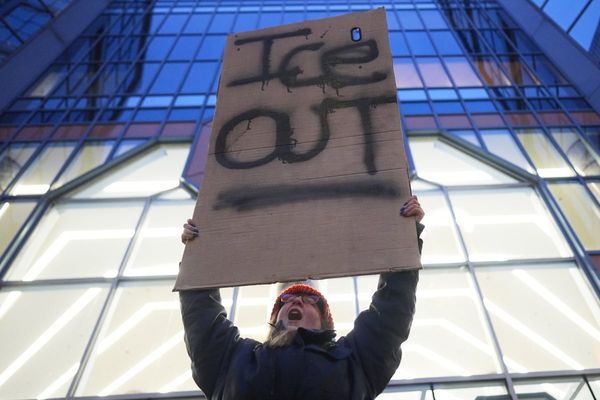A paedophile schoolteacher whose victims were left suicidal from their abuse is the latest former cricket coach to be identified in an ABC Sport investigation of Western Australian Cricket Association (WACA) elite junior squads of the 1970s and 1980s.
Warning: This article contains content that readers may find distressing
David "Harry" Harkess, who in 1989 was convicted of 55 counts of indecently dealing with 21 schoolboys, coached elite WACA under-16, under-15, under-14 and under-12 squads for five seasons from 1977-78 to 1981-1982.
ABC Sport understands WACA powerbrokers of the 1970s and 80s knew the nature of Harkess's conviction at the time it became public, but WACA chief executive Christina Matthews said the organisation's current leadership was not aware of Harkess's involvement at the WACA until contacted by ABC Sport.
Harkess's stint as a WACA junior coach overlapped with that of convicted sex offender Ian King, who coached WACA junior squads until at least 1977-78, and former WACA junior development officer and youth cricket council secretary Roy Wenlock, whose abuse of boys he had coaxed into "drinks boy" duties at the WACA was revealed by ABC Sport last month.
Wenlock's stint at the WACA lasted 29 years between 1979 and his death in 2007, but his sexual abuse of boys was only publicly revealed in 2012, as part of a West Australian parliamentary inquiry into sexual abuse of boys at Anglican hostels.
King is currently serving a 16-year jail sentence for his sexual abuse of boys in elite junior cricket squads administered by Cricket ACT. In 2006, a former Cricket ACT coaching colleague of King's told police that he and another coach had been warned by Western Australian counterparts upon King's arrival in Canberra that King had offended against boys in Western Australia.
Matthews said the WACA is taking the issue seriously and would consider options including a formal investigation of its elite junior programs of the 70s and 80s.
"We certainly have to think about how we look back and decide whether an investigation has to be undertaken," Matthews said.
"It's very, very sad and disappointing to hear that there may be further victims of sexual abuse out there. It's something we have to look into more deeply and get to the bottom of it.
"Again, I'm very sorry to anybody who suffered abuse while partaking in any WACA activities. I want to assure people that we have a lot of very strong, robust programs in place to make sure that can't happen now, and they're constantly being reviewed.
"That does not help survivors, but it does indicate that we've learned from the past and will continue to be stronger in the future."
In addition to his WACA coaching positions, Harkess, who died at 52 in 1999, also coached cricket, football and numerous others sports in the Perth suburbs of Mosman Park and Balga, and for many years in a West Australian wheatbelt town.
'Everyone's favourite uncle'
To associates on the West Australian cricket scene, David Alan Harkess was known as "Harry". To many of the hundreds of children he encountered in schools, churches and sports clubs around Western Australia, he was "Uncle Harry".
Decades after his abuse of children was revealed, Harkess is still described as a "Pied Piper" character within the communities he offended in. Survivors say he was a popular teacher and mentor who could instantly win the trust of any child he encountered.
But in May 1989, Harkess's life unravelled in Perth's Children's Court, where he pleaded guilty to 55 charges of indecently dealing with 21 boys from a small wheatbelt town in which he taught for seven years. Harkess was sentenced to 18 months in jail and minutes later attempted suicide in a holding cell, before being transported to Fremantle jail.
Newspaper reports at the time said at least four boys had been left suicidal by Harkess's abuse and others had suffered nightmares, psychological disorders and displayed symptoms of anorexia. The West Australian government was so fearful of the impact on the town that it sent a delegation of 12 psychologists to deal with the fallout.
At the time of Harkess's conviction, a gag order prevented media outlets from naming the town because the risk of identifying victims was too great. Harkess had abused at least one-third of the town's 100 boys.
But even outside court there were also disturbing insights into Harkess's ability to cultivate support, groom parents and maintain a psychological hold on those who fell under his spell. A contingent of parents belonging to the town's Church of Christ community stepped forward in Harkess's defence, saying the town had "no hate for him".
"Children were his whole life," one mother said of Harkess.
"He spent so much time with them, coaching junior teams in football, cricket, basketball, hockey and playing and coaching senior teams as well."
In 1987, the town had named him its citizen of the year. In court, Harkess's pastor described him as "everyone's favourite uncle".
Yet other sections of the town's community had long harboured suspicions about Harkess and were "disgusted" when supporters flocked to him.
"The general community feeling is that we do not want to see Harkess here ever," one resident told The West Australian.
'Moulding teenage boys into gentlemen'
According to WACA annual reports, Harkess was appointed to his first WACA coaching positions for the 1977-78 season — a period in which, survivors told ABC Sport, he was sexually abusing schoolboys placed in his care.
In that summer alone, Harkess coached three WACA junior teams: the under-15 state squad, plus the under-16 and under-14 WACA Metropolitan teams.
In 1978-79, Harkess was appointed WACA under-16 coach, replacing Ian King — another coach later convicted of child sex offences. In his first year in that role, Harkess led the under-16s on an interstate tour to Rockhampton.
In a note of thanks for his efforts, the WACA annual report stated that Harkess had "moulded 14 teenage boys into a group of young gentlemen, who won the accolades of all who came in contact with them".
In subsequent seasons, Harkess would lead the WACA under-16s on numerous interstate trips, including to Melbourne and Launceston for national carnivals.
A husky diabetic who exaggerated his playing feats, as a teenager Harkess had only been the scorer for the first XI at his Perth private school, Christ Church Grammar.
As a senior cricketer, his main claim to fame was as the unknown left-arm paceman who clean bowled England captain Mike Smith when the 1965-66 Ashes tourists took a net session in Perth. Otherwise, Harkess found his level in Nedlands CC's thirds and fourths teams.
As coach of the Nedlands under-12 and under-14 teams in the first half of the 1970s, Harkess was a bigger hit — so popular with the boys and their parents that his arrest and imprisonment almost 20 years later stunned them.
But others on the Perth cricket scene still wonder how, other than by nepotism, Harkess could have risen so far in WACA coaching ranks. During Harkess's elite coaching years, his father Alan, a prominent Perth businessman, was a notable sponsor of the WACA's junior programs via his Homecraft Nationwide stores.
WACA annual reports of the time confirm annual WACA 'player of the year' awards for each junior age group — trophies and coveted bats — were sponsored by Homecraft Nationwide Stores and presented by either Alan or David Harkess. As a naming rights sponsor, the company's name and logo appeared on WACA junior competition shields.
Speaking to ABC Sport, one former WACA elite junior who received one of the WACA's junior 'player of the year' awards said the brand new bats were often not available on the WACA's annual presentation night, but would instead be delivered to the boys' homes by David Harkess.
And one survivor of Harkess's abuse told ABC Sport that Harkess used brand new 'SP' brand cricket bats to groom boys at local club training sessions, allowing only select boys to use them.
'This fellow had a great rapport with the children'
The WACA was not the only Western Australian institution that Harkess infiltrated for a sustained period. Legal sources confirmed to ABC Sport that survivors of Harkess's abuse in primary school settings are considering suing the West Australian Department of Education.
At the time of Harkess's conviction, the only offences to be publicly aired were those that occurred between 1982 and the end of 1988, the point at which Harkess was exiled from the wheatbelt. But survivors of Harkess's abuse told ABC Sport he had been offending against schoolboys since at least the mid-1970s.
In response to a Freedom of Information (FOI) request by ABC Sport, Western Australia's Department of Education confirmed that between 1977 and 1989, Harkess taught at three other government schools — Balga North Primary between 1977 and 1980, Carlisle Primary School in 1982 and Banksia Park Primary School in 1989.
In his four years teaching at Balga North, survivors confirmed, Harkess had sexually abused boys during Friday night "sleepover" events the school permitted Harkess to host on school grounds.
Survivors said the schools ignored other obvious red flags about the "king of the kids" teacher, including his use of lollies and presents to groom children until they were "literally hanging off him" and his standing invitation for children to visit him at home and borrow videos from his film library.
Survivors told ABC Sport that most weekends, Harkess would drive children around in an 11-seater minibus that was his personal vehicle, taking boys on trips to the local speedway and WAFL football games — excursions on which, they say, boys were sexually abused.
Among those familiar with the West Australian Education Department's decision to accept a transfer request from Harkess in December 1988 — when his offending in the wheatbelt town was known — and grant him one final teaching posting at the beginning of 1989, there is still a sense of anger.
An education source with knowledge of Harkess's appointment to Banksia Park Primary School told ABC Sport the school was not warned about Harkess's rampant offending at his previous school and only became aware of his impending court appearance when an anonymous police officer tipped off the school.
By then, Harkess had taught at the school for the entire first term, instantly winning the affection of children.
"This fellow had a great rapport with the children," a social worker who counselled Harkess's victims told the Sydney Morning Herald in 1989.
"It cannot be said he was a monster in the mythical sense of the word.
"This rapport explains why the offences went on so long."
Do you have more information on this story? Contact jackson.russell@abc.net.au







